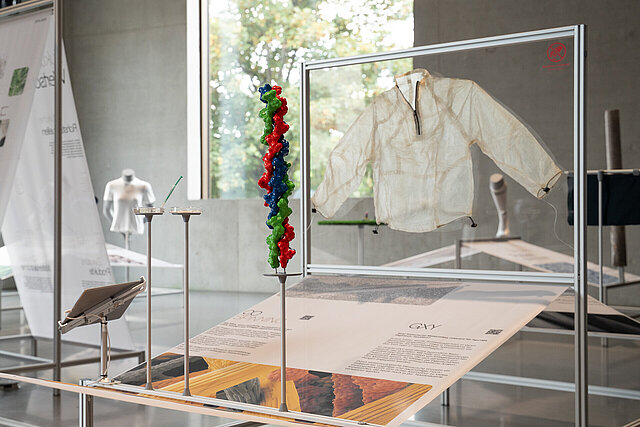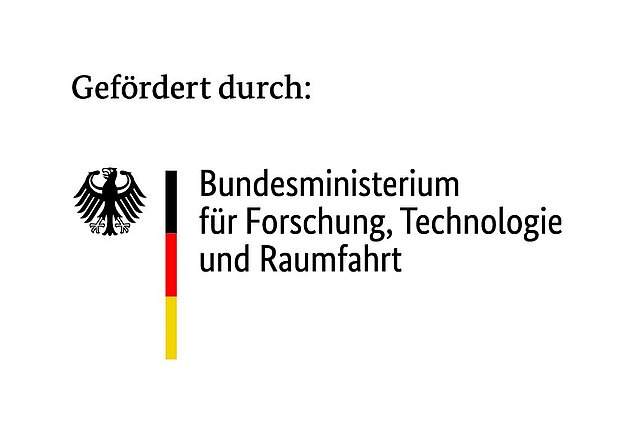The concept

In the BIOTEXFUTURE project GXY, partners from research and industry are working on a sustainable alternative to synthetic textile fibers such as elastane. The basis is genetically engineered collagen peptides – natural structural proteins that provide bones, tendons, muscles, and skin with their stability and elasticity.
The concept: The collagen structure of the so-called goldbeater's skin, discovered in the previous project GOLD, is artificially recreated in the laboratory. Using protein engineering and biotechnological processes, new collagen-based materials are being created that are elastic, biocompatible, biodegradable, and optimized for textile applications.
Motivation and Objective
The global textile market is currently 65% dependent on synthetic fibers, the production of which is based on fossil raw materials and contributes significantly to CO₂ emissions. The aim of GXY is to develop a high-performance, biodegradable textile material that replaces fossil resources and reduces environmental impact.
The project runs for 19 months until the end of 2025. The goal is the rapid, cost-effective development of scalable production in a bioreactor, which should also be possible on a ton-scale in the future. The processes run at only 37°C and require sugar, microorganisms, and water – an energy-saving process with high sustainability potential.
Research and Approach
Reverse engineering: Analysis and replication of the natural collagen structure.
Protein engineering: Adaptation of amino acid sequences for desired properties such as elasticity, tensile strength, or self-healing.
Biotechnological production: Microorganisms produce the collagen building blocks in the bioreactor, which are then spun into fibers and yarns.
Quality control: At the FILK Freiberg Institute, the fibers are tested for textile properties and further optimized using computer simulations.
Promising results are already emerging: The genetically engineered fibers demonstrate self-healing capabilities and, in the future, can also be processed using 3D printing – a potential path to a new era of textile production.
Project partners
Mimotype Technologies GmbH, Berlin DWI Leibniz-Institut für Interaktive Materialien e.V., Aachen

About BIOTEXFUTURE
The BIOTEXFUTURE innovation space, funded by the German Federal Ministry of Research, is led by RWTH Aachen University (Institute of Textile Technology, Chair of Sociology of Technology and Organization) and adidas AG. The goal is to transform textile production processes from fossil-based to bio-based raw materials.
